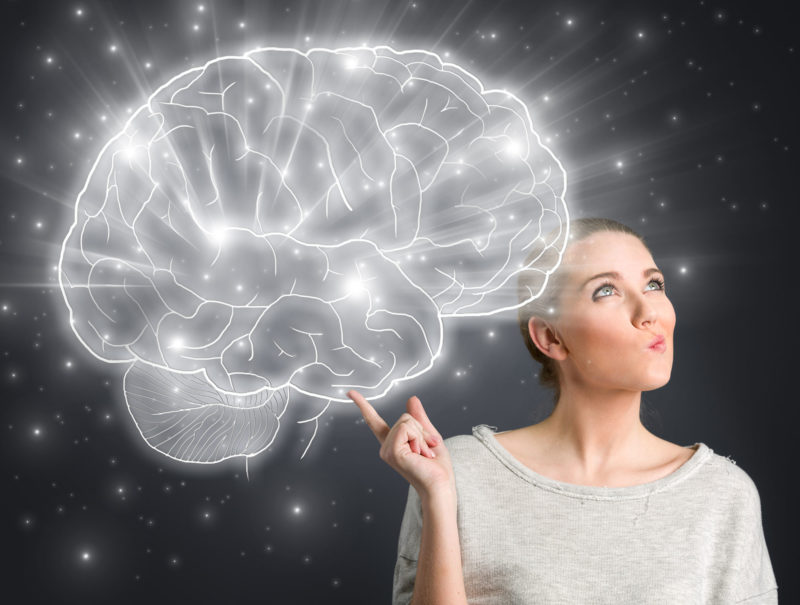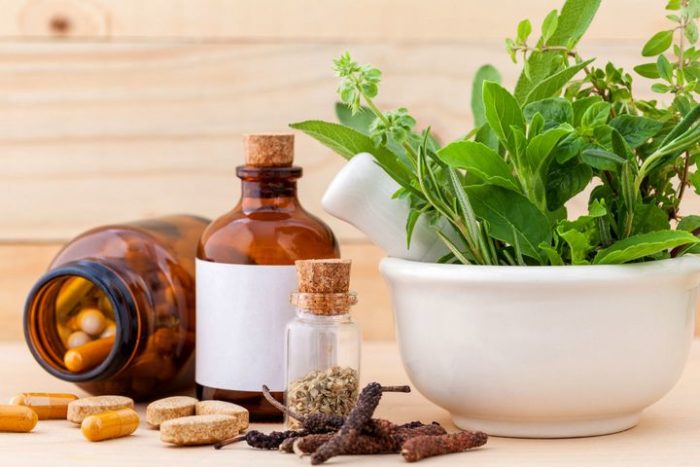
8 Natural Nootropics That Really Work
Nootropics, brain pills or cognitive enhancers – whatever you want to call them capsules packed with promises of neurological improvements have exploded onto the supplement market in recent years.
They’ve grown exponentially in popularity, with familiar names like Adderall and Ritalin commonly used by students and professionals.
However, while these synthetic nootropics may help to boost brain power, they often come with side effects that can leave you with headaches, insomnia, heightened heart rate and even anxiety.
Rather than opting for something that could leave you with adverse symptoms, a natural nootropic can be a much safer, yet highly effective choice.
Mother Nature has a huge selection of completely natural nootropics that can help to support your brain with its natural functions.
A natural nootropic works by improving circulation, regenerating cells, strengthening neurotransmitters and protecting the brain in the long run. All of this helps your brain to function at a higher level.
What’s more, natural nootropics can do all of this without the nasty side effects that often come from a synthetic option.
If you’re looking for a natural nootropic to help take your cognitive function to new heights, look no further. We’ve rounded up the very best herbal options available.
New to nootropics? Check out our complete beginners guide right here.
Best natural nootropics
- Caffeine
- Lions Mane Mushroom
- L-Theanine
- Bacopa Monnieri
- L-Tyrosine
- Citicoline
- Asian Ginseng
- Rhodiola Rosea
Caffeine

It’s something many of us consume on a daily basis, but caffeine is also a powerful nootropic. The feeling of alertness and wakefulness you feel after drinking a cup of coffee can be attributed to its brain boosting powers.
Studies have shown it can help to improve long-term memory [1], which can be extremely beneficial if you’re studying for an exam.
Caffeine can also greatly improve your reaction times, giving you a heightened sense of alertness and focus in your day-to-day life [2].
Lions Mane Mushroom
This mushroom is a common occurrence in traditional Asian medicine and has proven itself as a potent nootropic.
Research has shown that Lion Manes Mushroom contains active compounds called hericenones and erinacines, which stimulate the production of Nerve Growth Factor [3].
This helps to keep the brain healthy, ensures the signals between neurons are strong and helps to repair nerves within the brain [4]. This results in a reduction in anxiety and stress symptoms [5].
L-Theanine
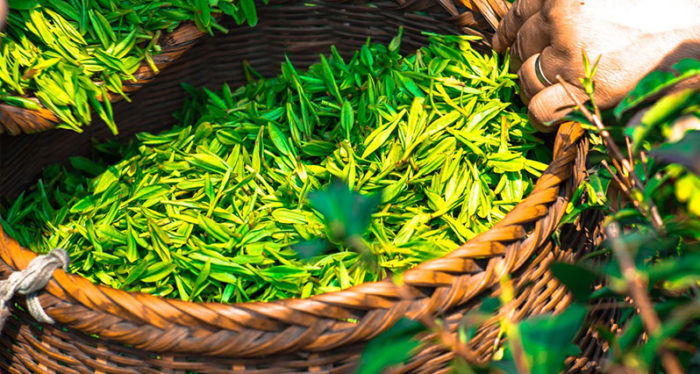
This amino acid is derived from tea and has been shown to boost your brain health and cognitive functions in a number of different ways.
The main benefits of taking l-theanine are based around concentration and mood.
Research has proven that l-theanine can increase alpha brain waves [6]. In this study, these larger waves have been linked to a simultaneous feeling of calm alertness and relaxed concentration, which helps to deal with stress.
L-theanine can also increase the presence of key neurotransmitters like dopamine, serotonin and GABA [7]. This can help with long-term brain health and has been linked to a reduction in stress and tension [8].
Related Article: Find out how green tea can help you burn more fat right here.
Bacopa Monnieri
This ingredient has a strong effect on your memory.
In a double-blind trial, researchers found that those who took Bacopa Monnieri showed an impressive improvement in recall and memory accuracy [9].
It also contains two active compounds called bacosides A and B, which have been shown to improve the way your body processes and deals with stress [10].
L-Tyrosine
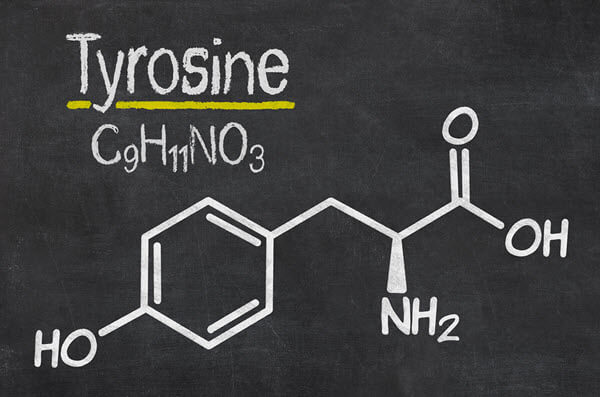
This amino acid helps to synthesize neurotransmitters like dopamine, epinephrine and norepinephrine [11]. By giving you a healthy boost of these transmitters, you can expect your memory, concentration and problem-solving skills to be greatly improved [12].
Citicoline
Within your body, citicoline breaks down into two compounds – cytidine and choline. These can then transform the signal strength between neurons within your brain [13], which can have a positive impact on your memory, attention span and learning [14].
It can also signal the release of uridine, which has been shown to protect and repair your brain cells. As a result, this process may improve mood and overall long-term health [15].
Asian Ginseng
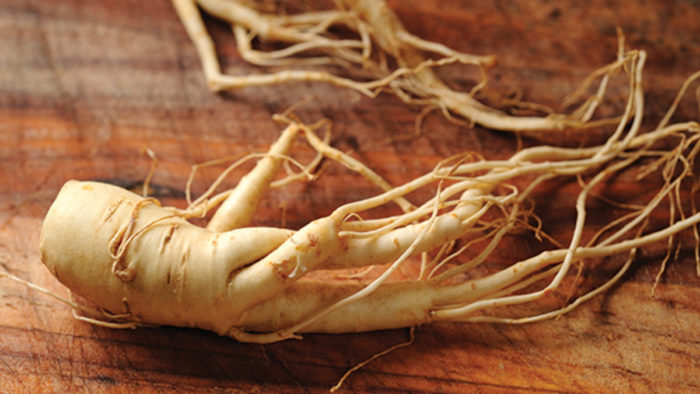
This is one of the mostly widely used and highly researched herbal medicines in the world, and a potent natural nootropic.
Within the brain, Asian ginseng works as an adaptogen, which helps your body deal with, and adapt to the symptoms of stress and fatigue. It does this by boosting GABA levels to fortify your mind [16].
It may also help to protect and renew key neurotransmitters in the brain, which can inhibit the chemical reactions that cause depression and anxiety [17].
Ginseng can also improve your memory and ability to learn. Several studies have shown it can help to boost nerve growth factor, which can lead to a heightened ability to recall and improved alertness [18].
Rhodiola Rosea
This is another hugely popular natural nootropic, that can be found a number of top-quality stacks.
Studies have shown that it can enhance mood and combat the effects of depression [19]. As a powerful adaptogen, it does this by influencing a number of brain chemicals like serotonin and norepinephrine [20].
Rhodiola rosea has also been shown to improve your ability to focus and combat ‘brain fog’ by repairing and maintaining neurons [21].
Final word
The world is packed with potent natural nootropics, that can help to boost your brain function in a huge number of ways.
If you’re looking for a mental edge, check out these natural nootropics, or pack an even more powerful punch with a stack. These combine a range of these ingredients so you can benefit from a plethora of mental improvements.
From elevated memory to heightened focus, opting for a natural option is a safe and effect way to enhance your cognitive performance.
Try them out for yourself and see if they can help you achieve more powerful brain function.
References
- Borota D., Murray E., Keceli G., Chang A., Watabe J.M., Ly M., Toscano J.P., Yassa M.A. “Post-study caffeine administration enhances memory consolidation in humans.” Nature Neuroscience. 2014 Feb; 17(2):201-3.
- Penetar D.M. et. Al. “Effects of Caffeine on Cognitive Performance, Mood, and Alertness in Sleep-Deprived Humans” Institute of Medicine (US) Committee on Military Nutrition Research National Academies Press (US); 1994.
- Kawagishi H., et. Al. “Erinacines A, B and C, strong stimulators of nerve growth factor (NGF)-synthesis, from the mycelia of Hericium erinaceum” Tetrahedron Letters Volume 35, Issue 10, 7 March 1994, Pages 1569–1572
- Lai P.L., Naidu M., Sabaratnam V., Wong K.H., David R.P., Kuppusamy U.R., Abdullah N., Malek S.N. “Neurotrophic properties of the Lion’s mane medicinal mushroom, Hericium erinaceus (Higher Basidiomycetes) from Malaysia.” International Journal of Medicinal Mushrooms. 2013;15(6):539-54.
- Nagano M., Shimizu K., Kondo R., Hayashi C., Sato D., Kitagawa K., Ohnuki K. “Reduction of depression and anxiety by 4 weeks Hericium erinaceus intake.” Biomedical Research. 2010 Aug;31(4):231-7.
- Song C.H., Jung J.H., Oh J.S., Kim K.S. “Effects of Theanine on the Release of Brain Alpha Wave in Adult Males.” Korean Journal of Nutrition 2003 Nov;36(9):918-923.
- Nathan P.J., Lu K., Gray M., Oliver C. “The neuropharmacology of L-theanine(N-ethyl-L-glutamine): a possible neuroprotective and cognitive enhancing agent.” Journal of Herbal Pharmacotherapy. 2006;6(2):21-30.
- Kimura K., Ozeki M., Juneja L.R., Ohira H. “L-Theanine reduces psychological and physiological stress responses.” Biological Psychology. 2007 Jan;74(1):39-45.
- Stough C., Downey L.A., Lloyd J., Silber B., Redman S., Hutchison C., Wesnes K., Nathan P.J. “Examining the nootropic effects of a special extract of Bacopa monniera on human cognitive functioning: 90 day double-blind placebo-controlled randomized trial.” Phytotherapy Research 2008 Dec;22(12):1629-34
- Sheikh, N. et al. Effect of Bacopa monniera on stress induced changes in plasma corticosterone and brain monoamines in rats. J Ethnopharmacol. 2007 May 22;111(3):671-6. Epub 2007 Jan 30.
- Purves, D. et al. Neuroscience. 2nd edition.
- Shurtleff, D. et al. Tyrosine reverses a cold-induced working memory deficit in humans. Pharmacol Biochem Behav. 1994 Apr;47(4):935-41.
- Taylor, P. and Brown, J.H. Synthesis, Storage and Release of Acetylcholine. Correspondence to Palmer Taylor and Joan Heller Brown, Department of Pharmacology, 0636, University of California, San Diego, La Jolla, California 92093.
- Hasselmo, M.E. The Role of Acetylcholine in Learning and Memory. Curr Opin Neurobiol. Author manuscript; available in PMC 2009 Mar 24.
- Grieb, P. Neuroprotective Properties of Citicoline: Facts, Doubts and Unresolved Issues. CNS Drugs. 2014; 28(3): 185–193. Published online 2014 Feb 7.
- Filaretov A.A., Bogdanova T.S., Podvigina T.T., Bodganov A.I. “Role of pituitary-adrenocortical system in body adaptation abilities.”Experimental and Clinical Endocrinology. 1988 Dec;92(2):129-36
- Radad K., Gille G., Moldzio R., Saito H., Rausch W.D. “Ginsenosides Rb1 and Rg1 effects on mesencephalic dopaminergic cells stressed with glutamate.” Brain Research. 2004 Sep 17;1021(1):41-53.
- Nishiyama N., Cho S.I., Kitagawa I., Saito H. “Malonylginsenoside Rb1 potentiates nerve growth factor (NGF)-induced neurite outgrowth of cultured chick embryonic dorsal root ganglia.” Biological and Pharmaceutical Bulletin. 1994 Apr;17(4):509-13.
- Darbinyan V., Aslanyan G., Amroyan E., Gabrielyan E., Malmström C., Panossian A. “Clinical trial of Rhodiola rosea L. extract SHR-5 in the treatment of mild to moderate depression.” Nordic Journal of Psychiatry. 2007;61(5):343-8.
- Lishmanov Iu.B., Trifonova Zh.V., Tsibin A.N., Maslova L.V., Dement’eva L.A. “[Plasma beta-endorphin and stress hormones in stress and adaptation].” – in Russian Biull Eksp Biol Med. 1987 Apr;103(4):422-4.
- Qin Y.J., Zeng Y.S., Zhou C.C., Li Y., Zhong Z.Q. “[Effects of Rhodiola rosea on level of 5-hydroxytryptamine, cell proliferation and differentiation, and number of neuron in cerebral hippocampus of rats with depression induced by chronic mild stress].” in Chinese Zhongguo Zhong Yao Za Zhi. 2008 Dec;33(23):2842-6.

